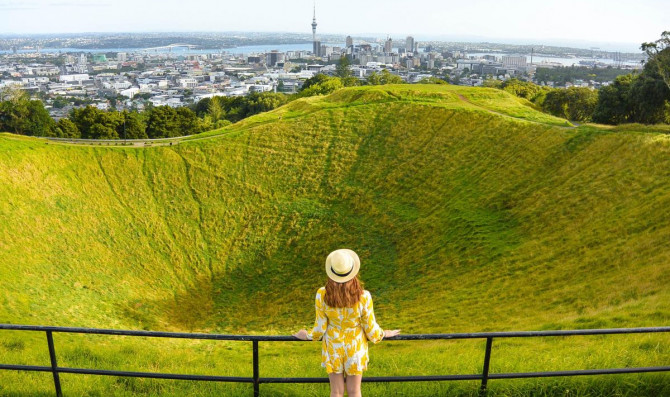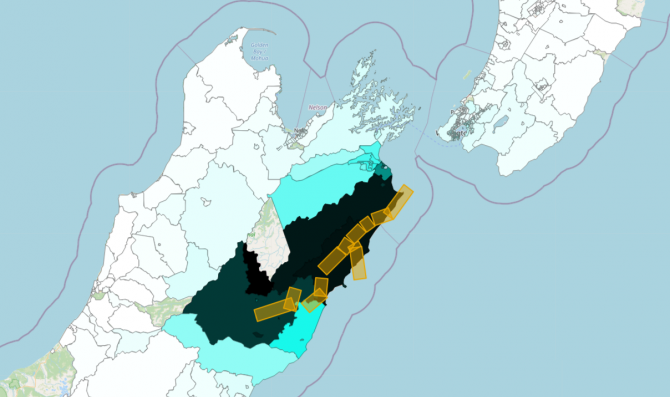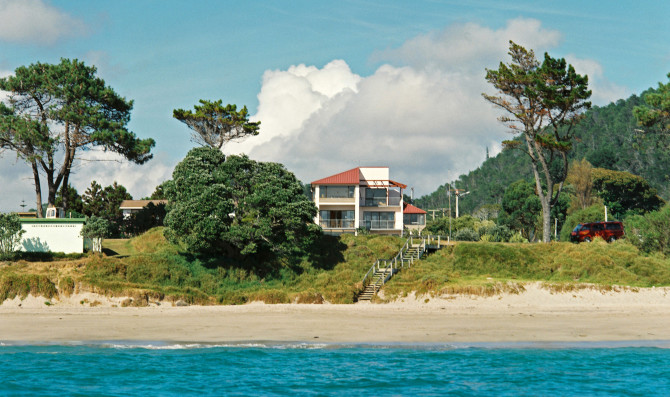The contingent liability associated with natural hazard risk in New Zealand is high and is carried by Toka Tū Ake EQC on behalf of the Crown. This means Toka Tū Ake EQC works to reduce risk from, and build resilience to, natural hazards in New Zealand. The Risk Reduction and Resilience Team leverages the research and data we fund to advocate, influence and where possible implement the reduction of natural hazard damage.
This page provides information on the work we do to achieve this.
You can reach out to us at Resilience@eqc.govt.nz

Advocating and influencing
One of the core aspects of Toka Tū Ake EQC’s work is to reduce the risk from, and build our resilience to natural hazards.
Central and local government rely on scientific research to design policies, regulations and guidance for thriving New Zealand communities. Toka Tū Ake EQC actively engages with the natural hazard risk and resilience sector to support, influence, and enable better decisions at the national and local level.
We fund and generate information that not only helps us to better understand the hazards we face, but also what can be done politically and practically to reduce the risks we face from hazard events.
To strengthen how we deliver on the Toka Tū Ake EQC Resilience Strategy for Natural Hazard Risk Reduction, we provide thought leadership and expertise to make a positive impact across the public and private sectors. We work with a variety of stakeholders to collaborate on matters of local and national significance, and we generate hazard scenarios, plans and programmes that identify gaps and opportunities for the sector. These allow us to establish ways we can work together to learn more, and do more for our communities.
We also provide expertise to serve public interests, support public education campaigns, and reduce risk and resilience uncertainties.

Risk information
Another key focus for Toka Tū Ake EQC is how New Zealanders access, use and interpret natural hazard information. Our mandated research and education function allows us to build data and knowledge, create meaning and develop new insights by translating ideas and interpreting science, and ensure this knowledge provides the evidence basis for positive planning outcomes.
Risk information can help inform property purchase decisions, assist in prioritising risk reduction actions, and make better land use decisions, both now and in the future. Specific information on risk and natural hazards on a home-by-home basis includes:
- insurance information
- natural hazards exposure mapping
- home-specific vulnerability characteristics
- risk and loss modelling
- translating risk information into risk reduction options
Natural Hazards Portal
At Toka Tū Ake EQC we help people use data and knowledge to make informed decisions for our homes, towns and cities. We want to support people and communities to understand the choices they can make, so we can live in an Aotearoa that is resilient to natural hazards.
We’ve developed the Natural Hazards Portal, a website with information on natural hazard risk, and what to do about it. You can use the portal to:
- explore settled EQCover claims from 1997 to present for residential property and land from past natural hazard events across Aotearoa New Zealand
- improve awareness and increased understanding of natural hazard risk
- understand how natural hazard events may impact homes and communities
- explore where natural hazard events have occurred in New Zealand before
- consider how to manage risk and build resilience.
A resilient New Zealand is one in which the potential consequences of natural hazards are carefully considered and included in everyday decisions and long term planning.
Together we want to prioritise the management of natural hazard risk, so the wellbeing of our communities is protected into the future.

Risk reduction
Toka Tū Ake EQC’s risk reduction function further empowers us to facilitate methods of reducing and preventing natural hazard damage. To do this, we use our risk information evidence base to target risk reduction actions.
Investing in risk reduction and building resilience is one of the most efficient and effective ways to reduce the impact of natural hazard risks on New Zealanders.
Visit our external partners
New Zealand Planning Institute
We have partnered with the NZ Planning Institute to build and improve sector capability.
Resilience to Nature's Challenges
RNC undertakes innovative and collaborative research to accelerate resilience to natural hazards.
United Nations Office for DRR
EQC uses and supports risk and resilience research by the United Nations Office for Disaster Risk Reduction (UNDRR).
MBIE Building Performance
MBIE plays a key role in increasing the resilience of homes and buildings alongside Toka Tū Ake EQC.